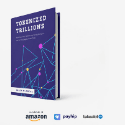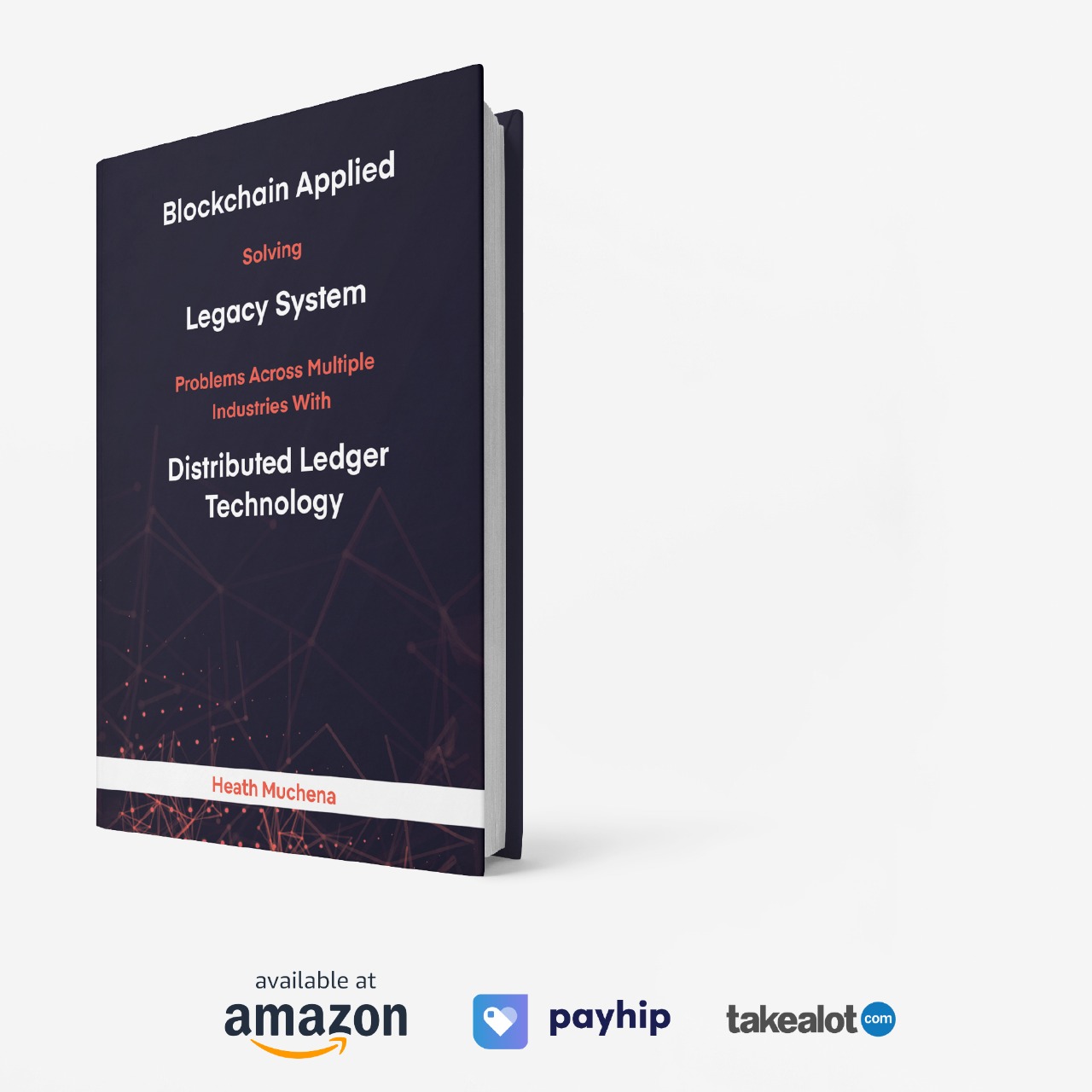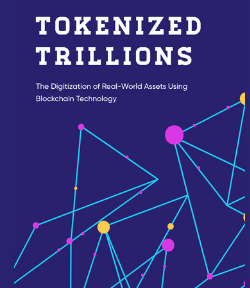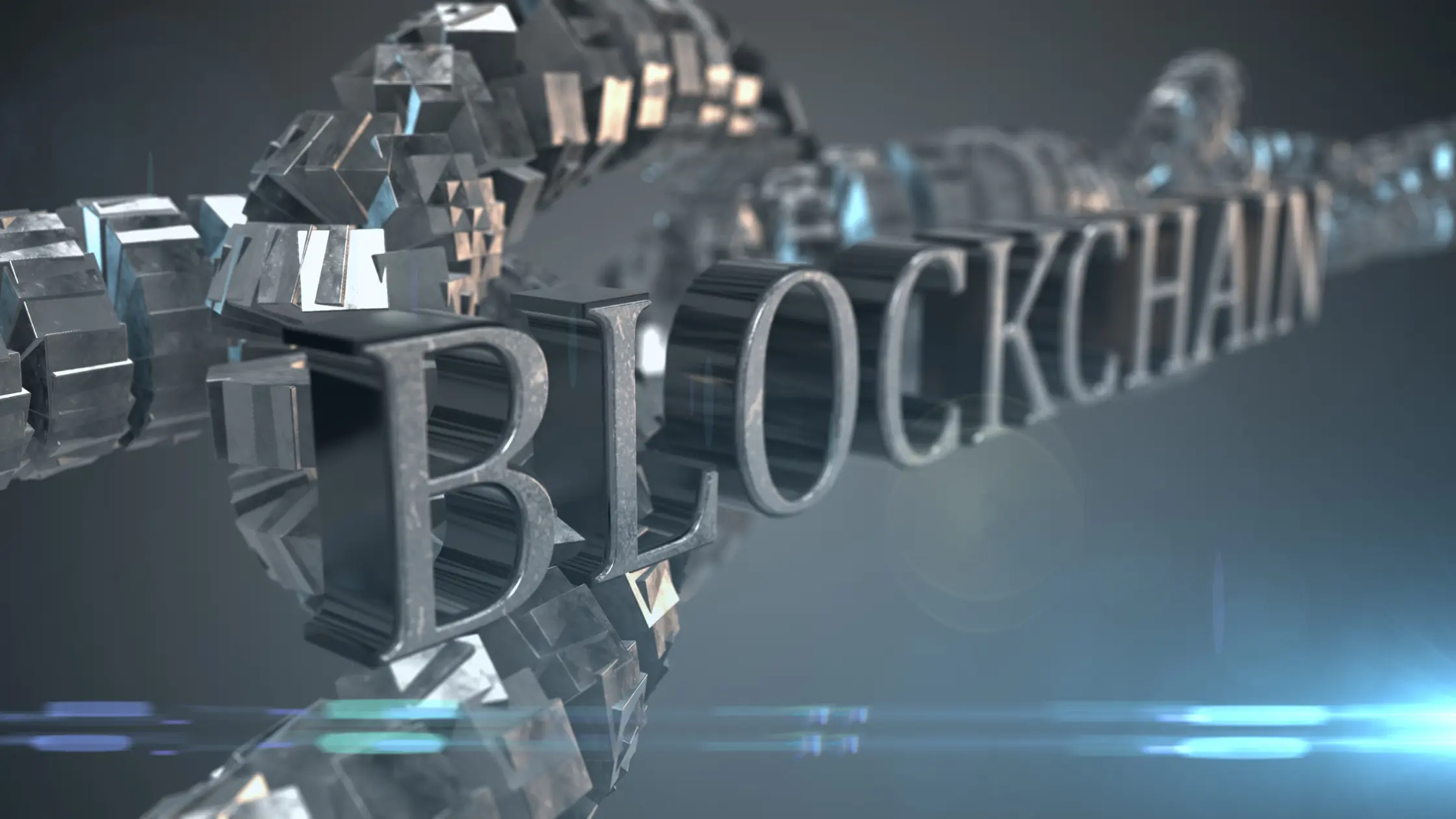
With the rise of blockchain and the growing interest in decentralized solutions, Decentralized Physical Infrastructure Networks (DePIN) have emerged as a revolutionary concept with the potential to disrupt traditional infrastructure models across various sectors.
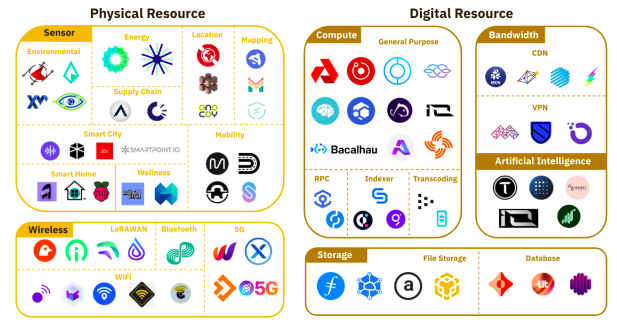
What is DePIN?
DePIN stands for Decentralized Physical Infrastructure Network, a term encompassing networks that utilize blockchain technology to decentralize the control and ownership of physical infrastructure. Traditionally, physical infrastructure like data networks, transportation systems, and electrical grids have been managed by centralized entities. DePIN projects aim to replace this centralized control with peer-to-peer (P2P) networks, allowing individuals to contribute their own physical resources and collectively own and manage the network.
Advantages of DePIN
- Enhanced Security and Resilience: DePIN’s decentralized nature reduces susceptibility to single points of failure and targeted attacks.
- Scalability: DePINs can quickly scale by leveraging distributed nodes that contribute resources to the network.
- Lower Costs: Decentralized resource utilization reduces the costs associated with building and maintaining infrastructure.
- Democratization of Access: DePIN allows more participants to contribute and benefit, fostering a more equitable ecosystem.
- Innovation and Flexibility: Decentralized approaches encourage innovative solutions and adaptability to changing needs and technologies.
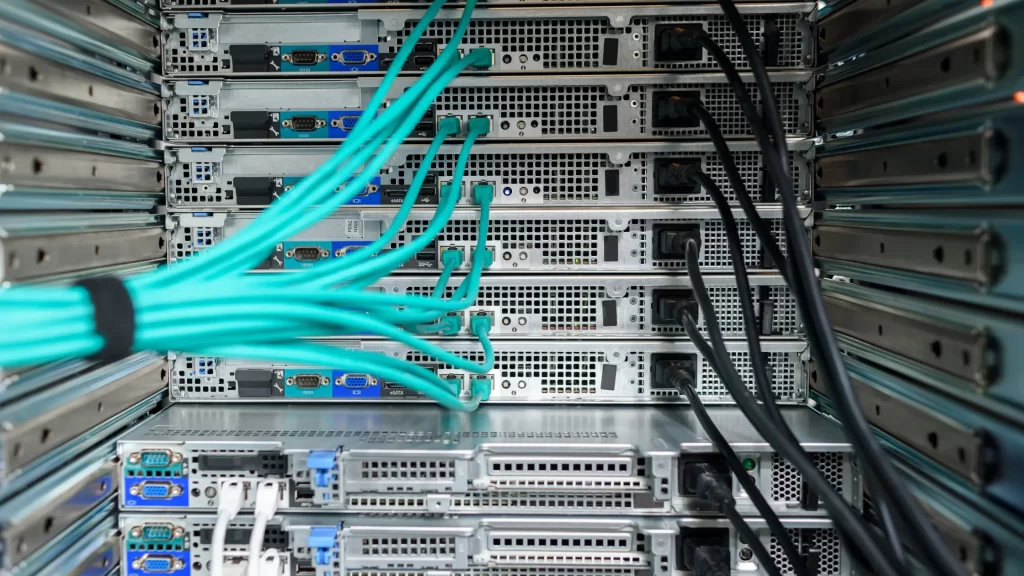
Here are ten notable DePIN projects that are making waves in 2024.
Filecoin (FIL)
Filecoin is a decentralized storage network that enables users to rent out spare storage space on their computers. It operates on the InterPlanetary File System (IPFS) and incentivizes participants with FIL tokens. This setup offers a decentralized alternative to traditional cloud storage, providing cost-effective, scalable, and secure data storage solutions. Filecoin is traded on major exchanges such as Binance, Kraken, and Huobi.
Internet Computer (ICP)
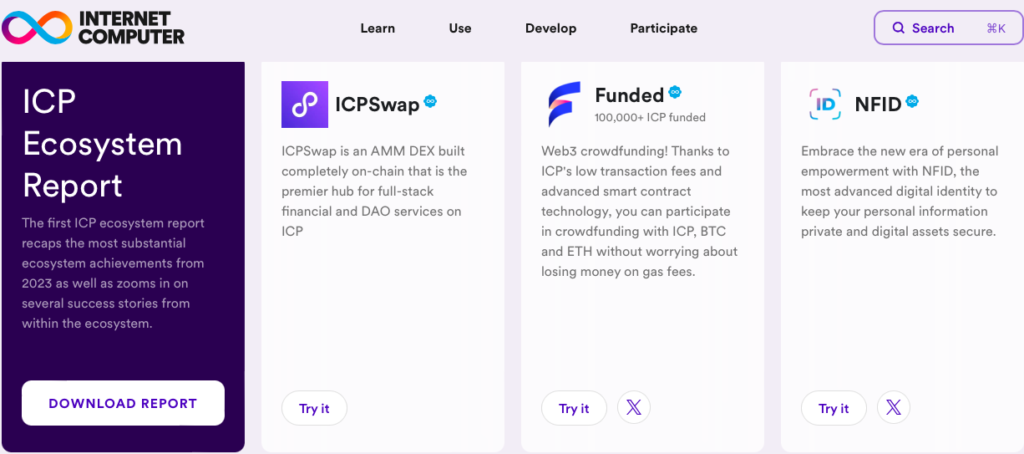
Developed by the DFINITY Foundation, Internet Computer is a decentralized computing platform designed to support the next generation of decentralized applications (dApps). It uses a unique consensus mechanism called Threshold Relay and operates entirely on a network of dedicated node machines. The ICP token powers computation, facilitates governance, and acts as a store of value. ICP is available on exchanges like Binance, Coinbase, and Huobi.
Bittensor (TAO)
Bittensor is a decentralized network that merges blockchain technology with artificial intelligence (AI). It allows machine learning models to train collaboratively across a decentralized network, with participants rewarded in TAO tokens. This approach democratizes AI development and ensures that contributions are fairly rewarded. TAO tokens are available on exchanges such as KuCoin.
Render Network (RNDR)
Render Network decentralizes GPU computing power, enabling high-quality rendering services for applications in virtual reality, augmented reality, and other digital content creation. By allowing users to rent out their idle GPU resources, the network provides a cost-effective and scalable solution for rendering tasks. RNDR tokens are used for transactions within the network and can be traded on exchanges like Binance and Huobi.
Arweave (AR)
Arweave offers a decentralized storage solution focused on permanent data storage. Users pay a one-time fee in AR tokens to store data forever, leveraging a unique blockweave technology that ensures data redundancy and security. Arweave’s approach to immutable data storage makes it ideal for archival purposes. AR tokens are traded on exchanges such as Binance and Huobi.
Theta Network (THETA)
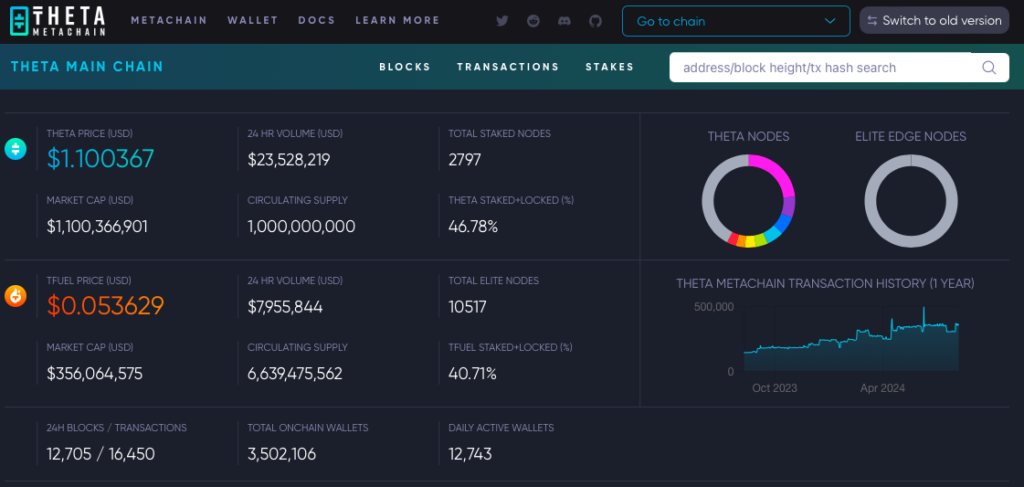
Theta Network is a decentralized video delivery network that improves video streaming quality and reduces costs by utilizing users’ spare bandwidth and computing resources. The network’s THETA token incentivizes users to share their resources, fostering a more efficient and cost-effective streaming ecosystem. THETA is available on major exchanges including Bybit, Gateio, and OKX.
Akash Network (AKT)
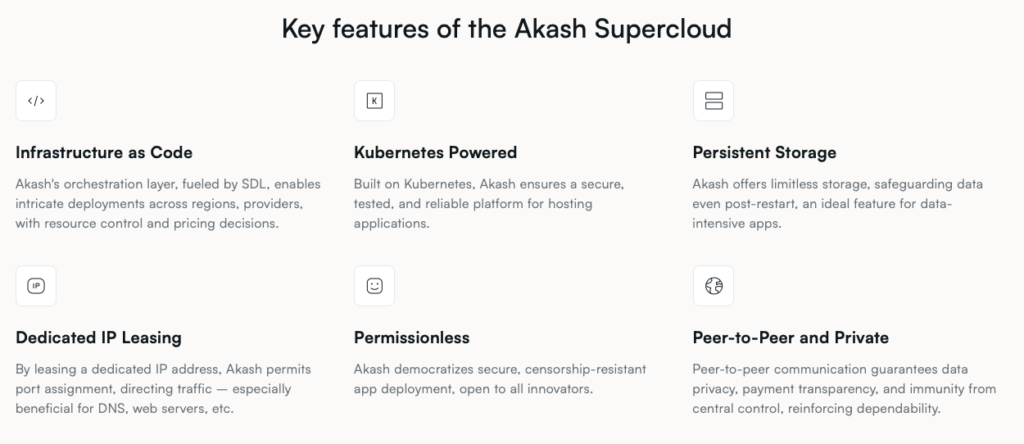
Akash Network is a decentralized cloud computing marketplace that connects users needing computing resources with those who have spare capacity. Built on the Cosmos SDK, it offers a secure and efficient platform for deploying and managing applications. The AKT token facilitates transactions within the network. AKT is traded on exchanges such as Binance and Kraken.
Storj (STORJ)
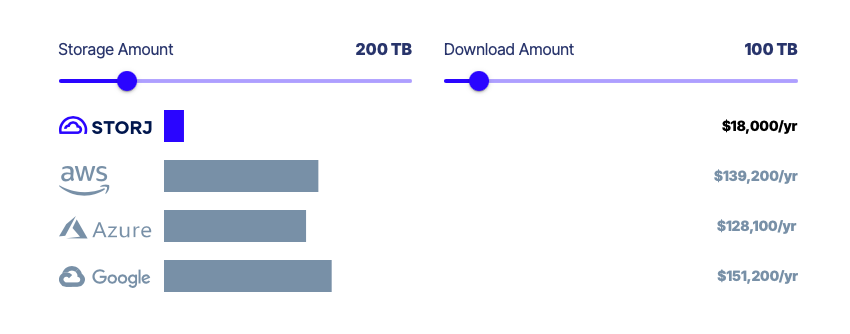
Offers decentralized cloud storage, prioritizing security and privacy by encrypting and distributing data across a global network of nodes. The STORJ token facilitates transactions and rewards node operators.
World Mobile Token (WMT)
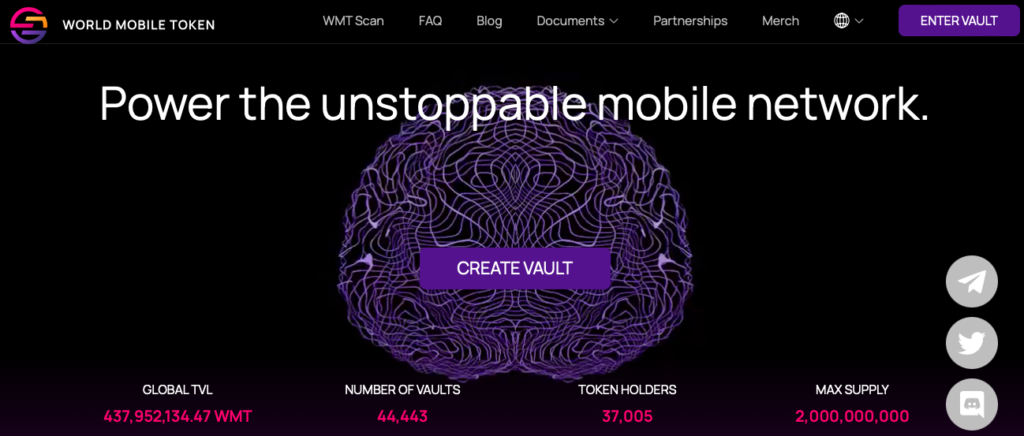
World Mobile Token is focused on providing decentralized mobile network services, particularly in underserved regions. The project employs two types of nodes: EarthNodes, which secure the network and verify transactions, and AirNodes, which enable users to share their mobile data and WiFi. Participants are rewarded with WMT tokens for their contributions, promoting network expansion and connectivity. By leveraging blockchain technology, World Mobile Token aims to bridge the digital divide, offering affordable and accessible internet services globally.
BitTorrent (BTT)
BitTorrent is a pioneering project in the decentralized file-sharing space. Acquired by TRON in 2018, BitTorrent leverages blockchain technology to enhance its peer-to-peer file-sharing protocol. The BTT token incentivizes users to share bandwidth and storage, ensuring efficient and rapid file distribution. This decentralized approach optimizes the network’s performance as more users participate, making it a robust alternative to traditional centralized file-sharing systems. BitTorrent’s extensive user base and continued innovation position it as a key player in the DePIN landscape.
Challenges and Future Outlook
Despite its potential, DePIN faces several challenges:
Technical Complexity: Integrating blockchain with physical infrastructure requires significant expertise and robust platforms that can handle security, scalability, and interoperability.
Regulatory Hurdles: Navigating different regional regulations governing physical and digital infrastructures can complicate deployment.
Market Acceptance: Demonstrating clear benefits over traditional systems in terms of cost, efficiency, and usability is crucial for widespread adoption.
However, the future of DePIN looks promising. Market predictions suggest substantial growth, possibly reaching a market size of $3.5 trillion by 2028. This expected expansion is driven by increasing demand for decentralized services such as high-quality streaming, data storage, and scalable infrastructure solutions.
Conclusion
DePIN projects are rapidly becoming a vital part of the blockchain and crypto space, boasting a combined market cap exceeding $25 billion. These projects present significant opportunities for technological innovation and investment, potentially revolutionizing how physical infrastructure is managed and monetized. As the demand for decentralized solutions grows, DePIN projects are poised to play an increasingly pivotal role in the future of digital infrastructure.
